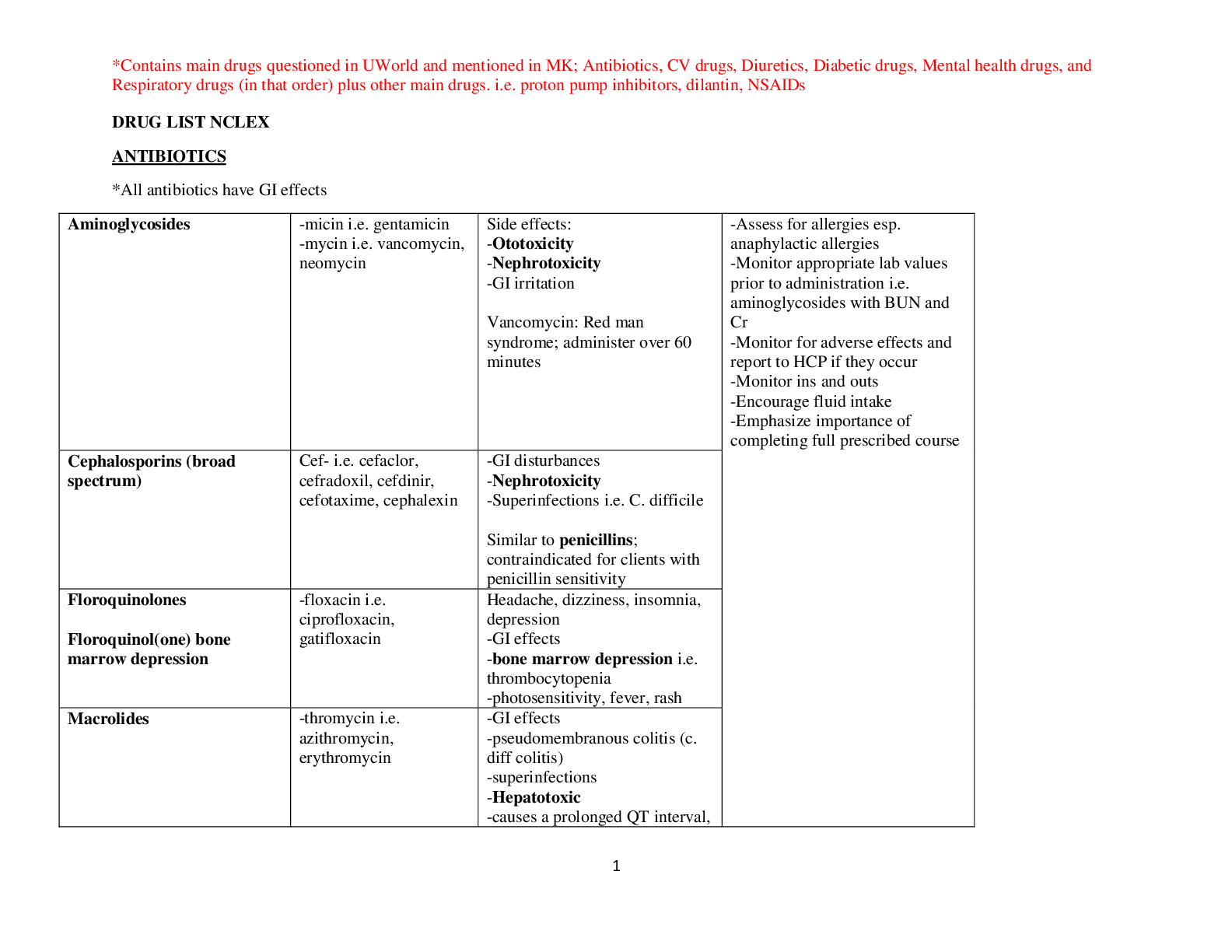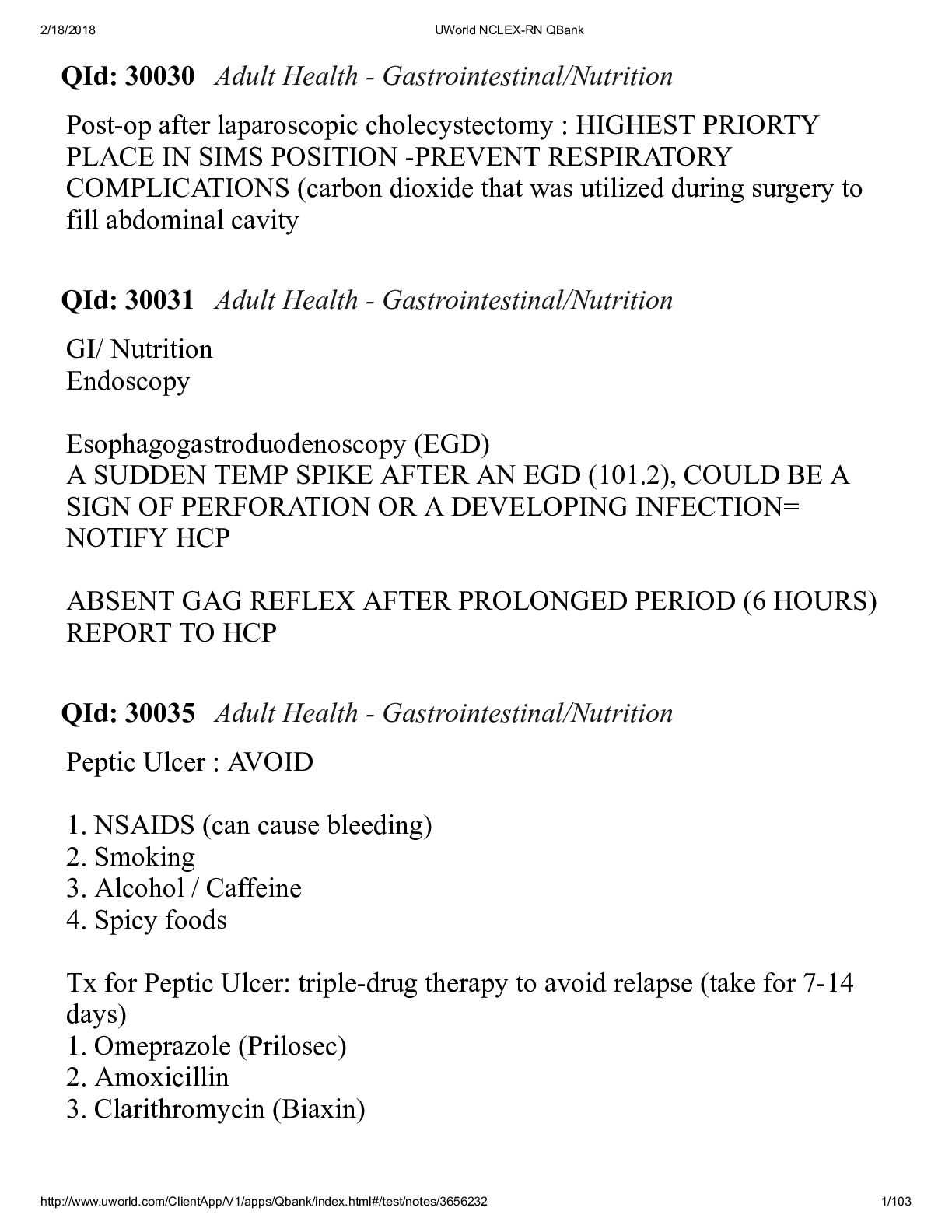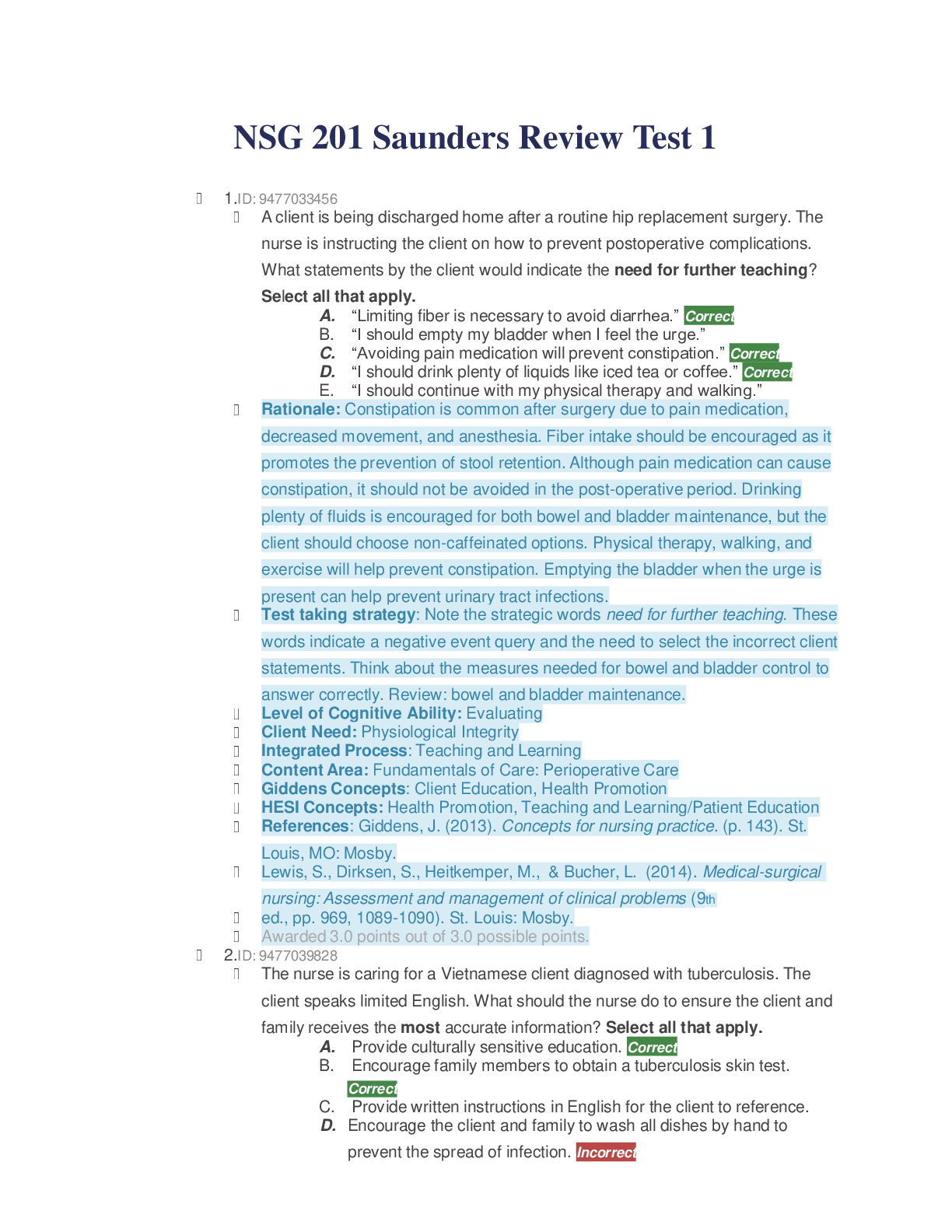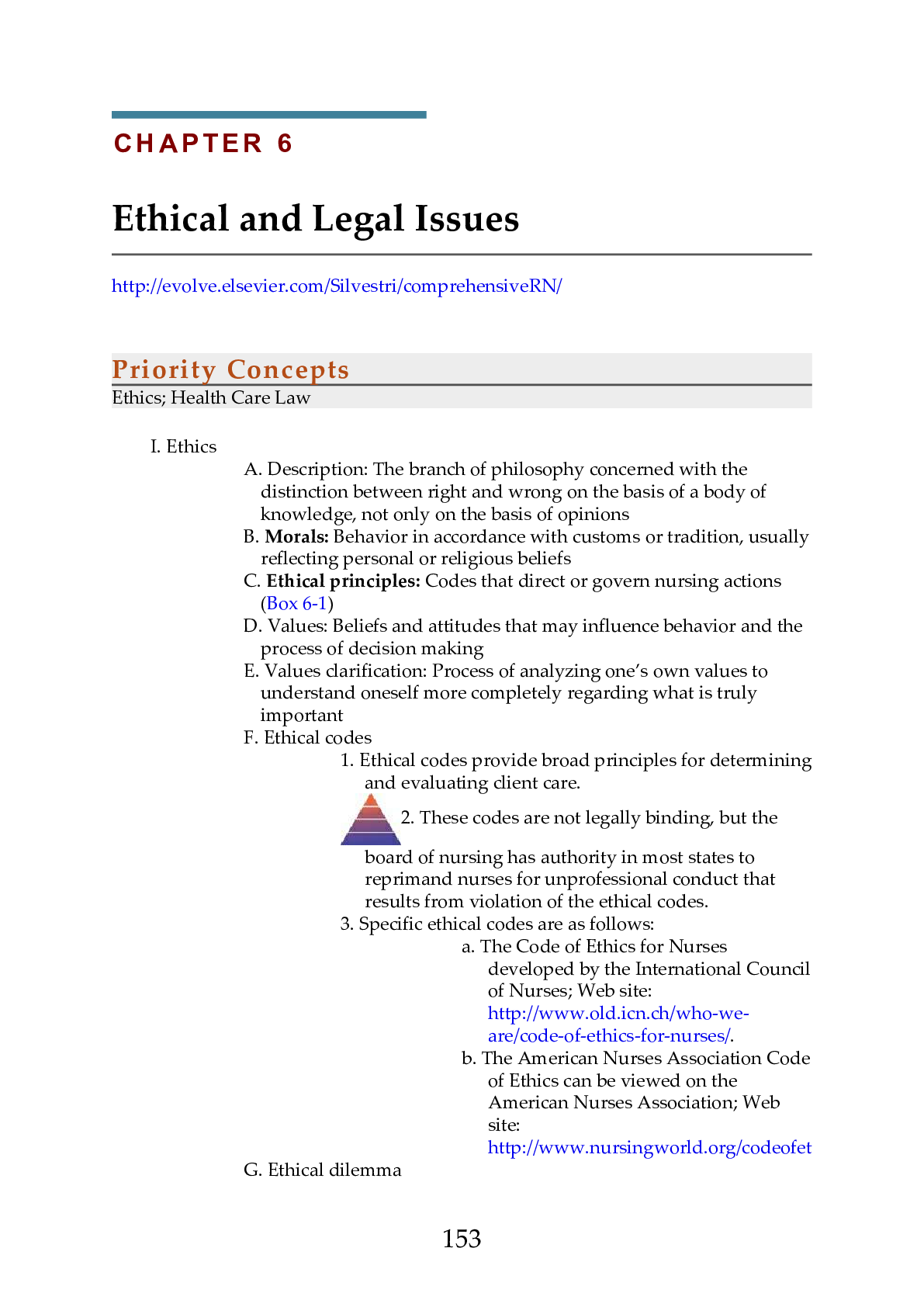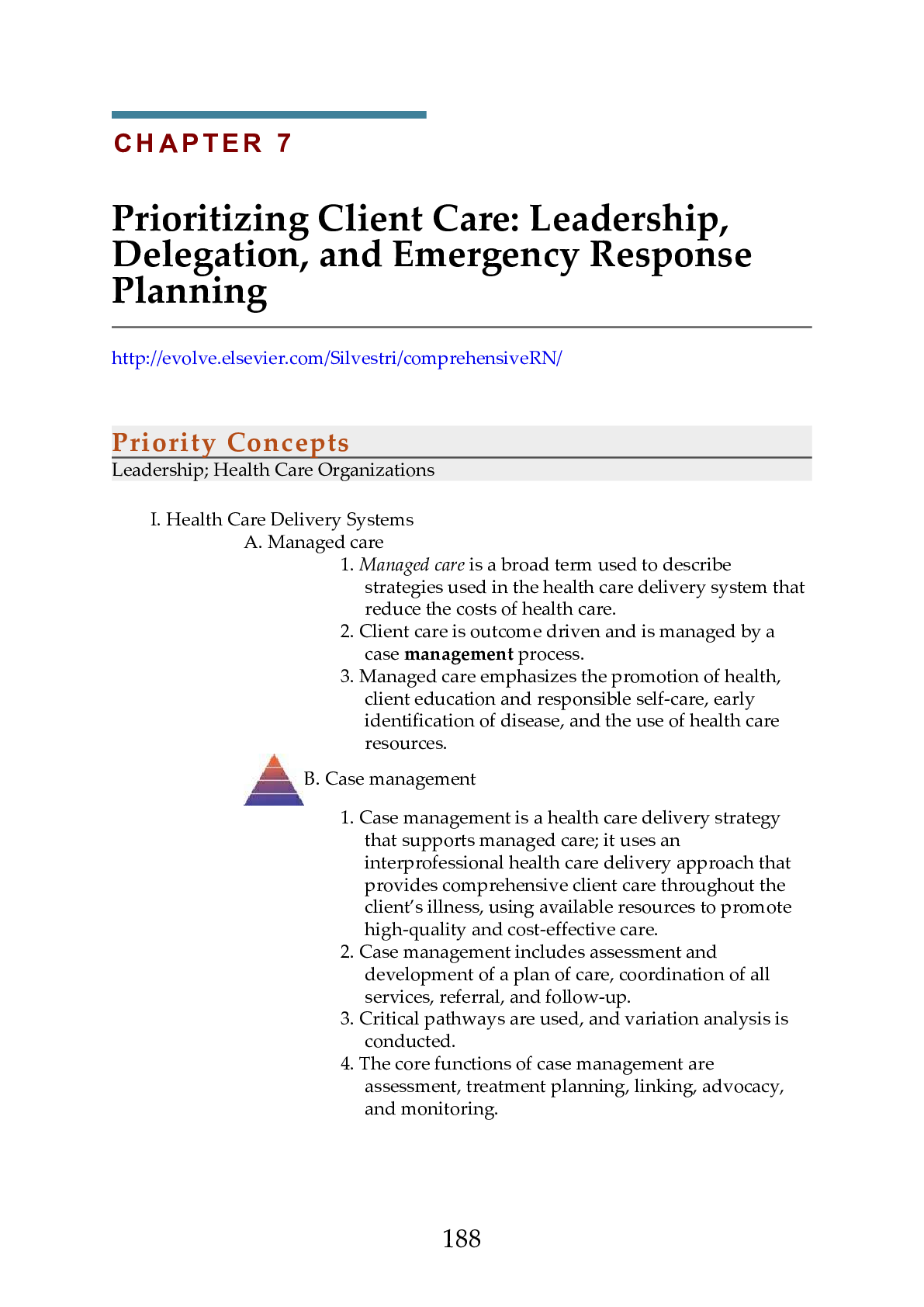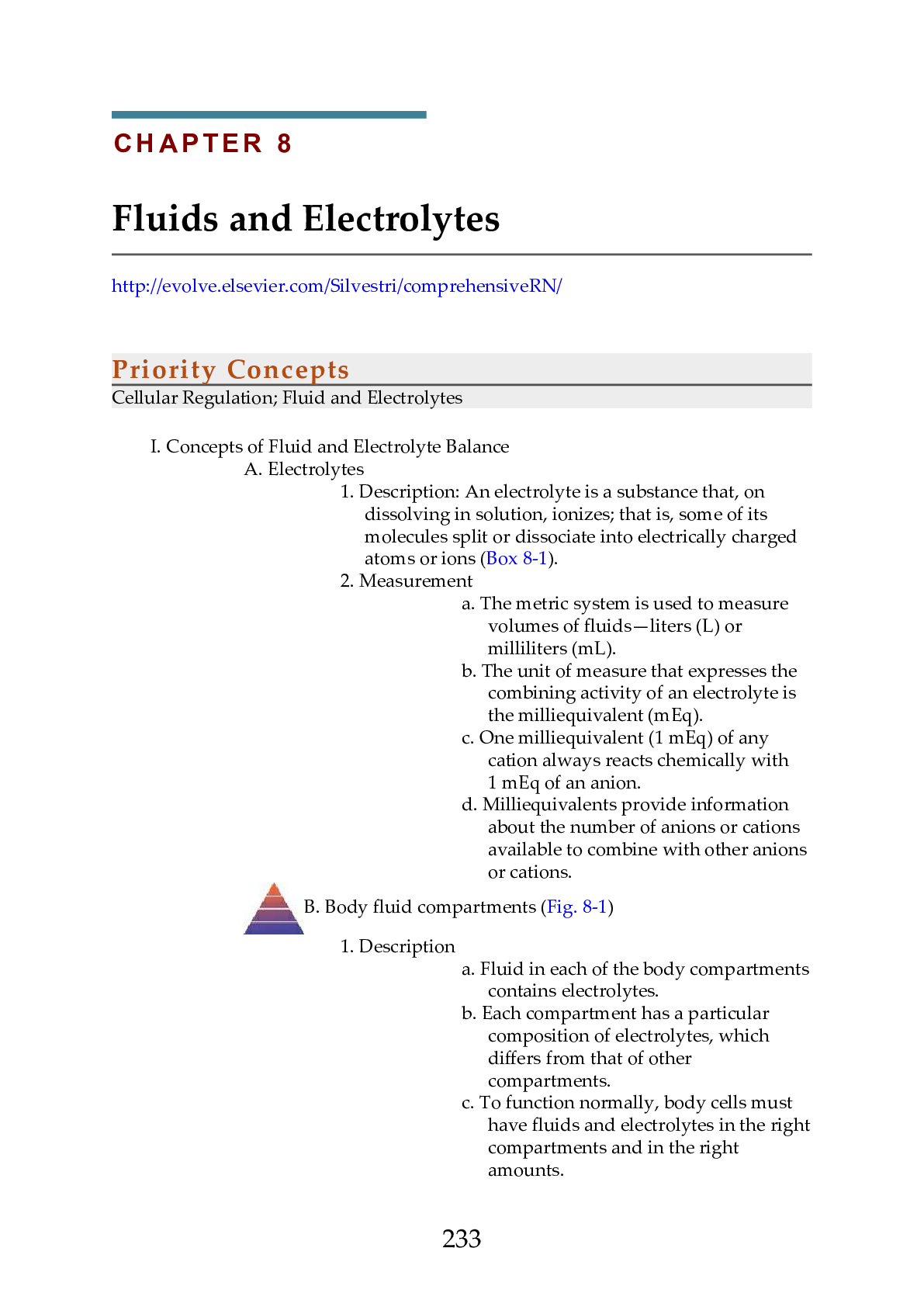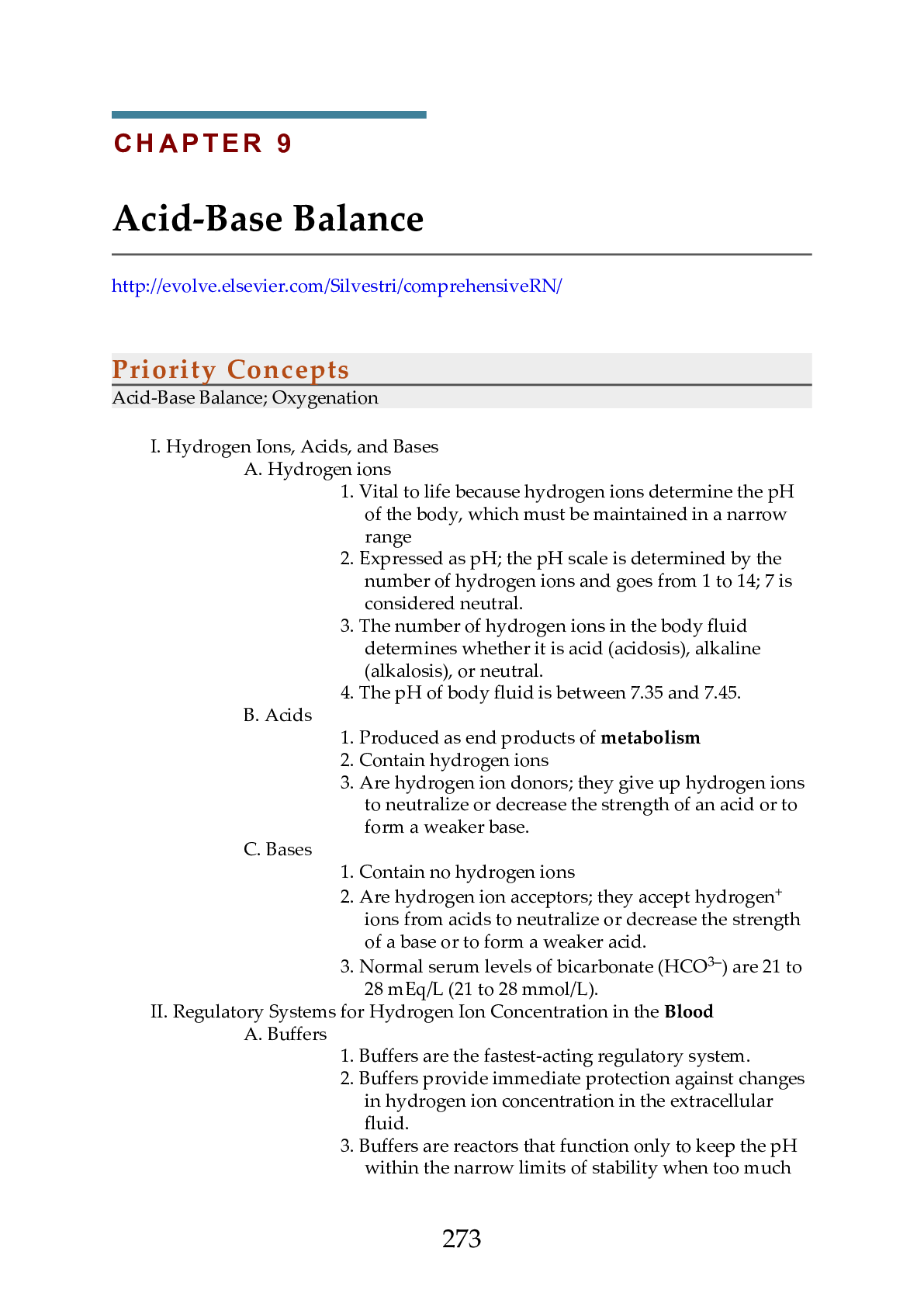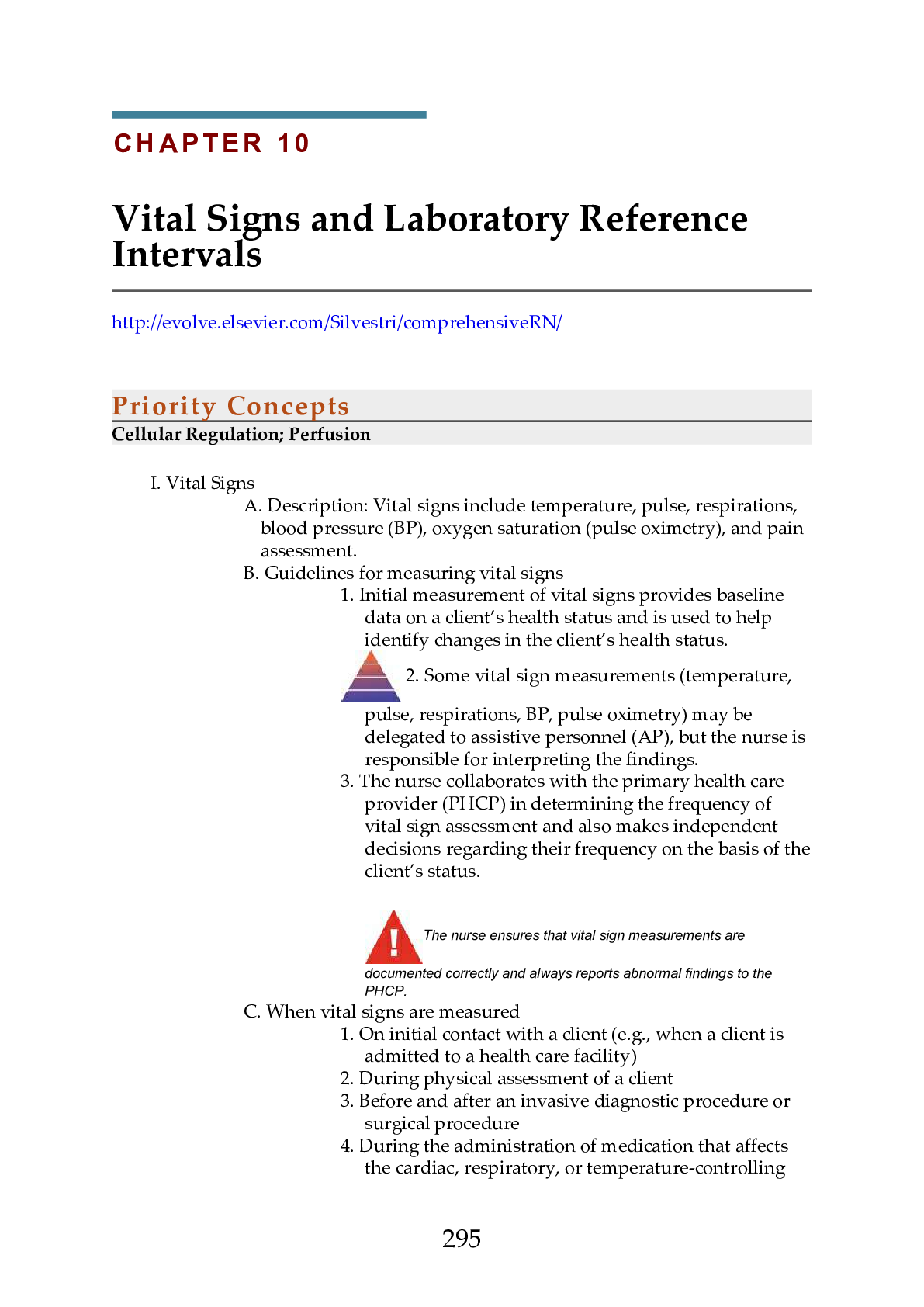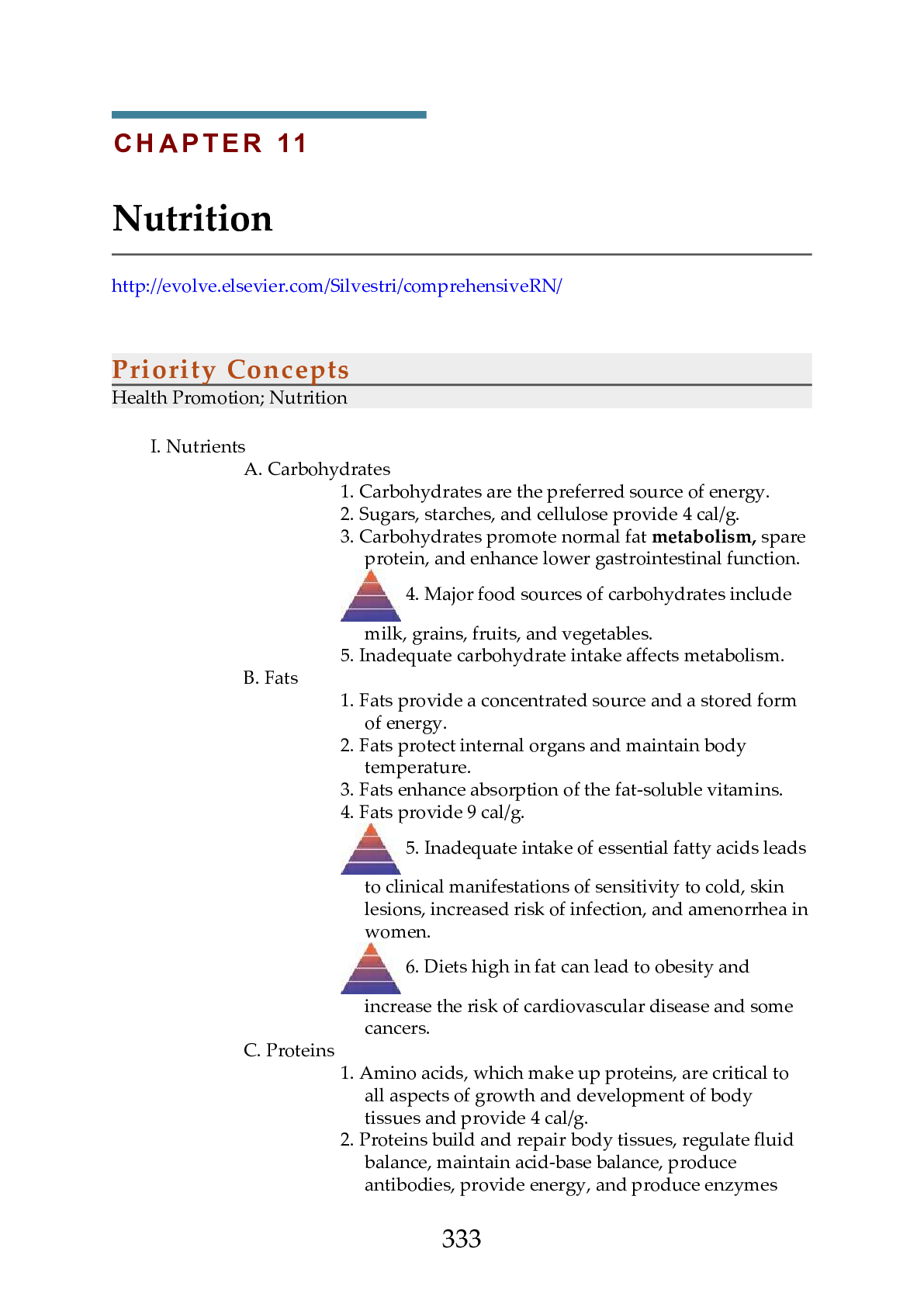*NURSING > NCLEX-RN > DRUG LIST NCLEX | Contains main drugs questioned in UWorld and mentioned in MK; Antibiotics, CV dru (All)
DRUG LIST NCLEX | Contains main drugs questioned in UWorld and mentioned in MK; Antibiotics, CV drugs, Diuretics, Diabetic drugs, Mental health drugs, and Respiratory drugs
Document Content and Description Below
Aminoglycosides Cephalosporins (broad spectrum) Floroquinolones Floroquinol(one) bone marrow depression Macrolides Penicillins Sulfonamides Tetracyclines Antifungal medications Antiviral me... dications Anticoagulants Thrombolytic medications Antiplatelet medications Positive inotropes/cardiotonic medications Cardiac glycosides Peripherally acting Alpha Adrenergic blockers Centrally acting Adrenergic blockers ACE inhibitors and ARBs Nitrates Beta blockers Calcium channel blockers Miscellaneous vasodilator Adrenergic Agonists HMG-CoA Reductase Inhibitors (statins) Antidysrhythmics Thiazide diuretics Loop diuretics (Potassium-wasting diuretics) Potassium-sparing diuretics Osmotic diuretics NPH Glargine (lantus), Detemir Regular i.e. humulin R, novolin R Lispro (Humalog), Aspart, Glulisine (LAG) ORAL HYPOGLYCEMIC AGENTS DIABETIC DRUGS **Watch for hypoglycemia during peaks! ORAL HYPOGLYCEMIC AGENTS Biguanides Sulfonylureas Meglitinides Gliptins (DPP-4 inhibitors) Thiazolidinediones PSYCH DRUGS *All psych drugs have indications for WEIGHT GAIN and HYPOTENSION *Always taper medications down and never stop dosing abruptly Serotonin Reuptake Inhibitors (SSRIs) Serotonin-Norepinephrine Reuptake Inhibitors (SNRIs) Monoamine Oxidase Inhibitors (MAOIs) Tricyclic Antidepressants (TCAs) Mood stabilizers Benzodiazepines Barbiturates Antipsychotics RESPIRATORY MEDICATIONS *For any respiratory medication, think sympathetic effects! Bronchodilators (beta 2 agonists) Methylxanthines Anticholinergics Glucocorticoids Leukotriene modifiers Antihistamines Nasal decongestants Opioid antagonists Tuberculosis Agents Other commonly tested drugs Folate antimetabolite, antineoplastic, immunosuppressant drugs Anticonvulsants NSAIDs Proton pump inhibitors Aspirin Corticosteroids Anticholinergics EXTRA TIPS: • Do not administer anything sedative i.e. opioids, benzodiazepines, barbiturates to clients with increased ICP as it can mask somnolence and decreasing LOC • Always monitor blood pressure in vasodilating medications prior to administration i.e. ACE inhibitors, nitrates • Neuroleptic Malignant Syndrome and Malignant Hyperthermia are similar in terms of symptoms! i.e. muscle rigidity, hyperthermia, mental status changes, tachycardia, tachypnea—difference lies in causes Neuroleptic Malignant Syndrome Malignant Hyperthermia • Causes: Antipsychotics and low dose phenothiazines used as antiemetics i.e. Haldol, chlorpromazine • Treated by: dantrolene for hyperthermia, benzodiazepines for anxiety and agitation, and dopamine agonist bromocriptine • Causes: inhaled anesthetics ie. Halothane, muscle relaxant i.e. succinylcholine • Treated by: dantrolene for hyperthermia, benzodiazepines for anxiety and agitation, NO bromocriptine [Show More]
Last updated: 3 months ago
Preview 4 out of 16 pages

Loading document previews ...
Buy this document to get the full access instantly
Instant Download Access after purchase
Buy NowInstant download
We Accept:

Reviews( 0 )
$5.00
Can't find what you want? Try our AI powered Search
Document information
Connected school, study & course
About the document
Uploaded On
Oct 18, 2020
Number of pages
16
Written in
Additional information
This document has been written for:
Uploaded
Oct 18, 2020
Downloads
0
Views
234

